"The State shall not deny to any person equality before the law and equal protection of laws within the territory of India.” – Article 14 of the Constitution of India.
In addition to the this, there is Article 21 too. Though it does not explicitly mention the right to security, it is an integral part of the right to life and personal liberty.
If we are to believe the above two facts, it implies that all Indian citizens are to be treated as equals before the law – and they have the right to security inside their homes and in all public spaces, irrespective of their socio-economic status.
Now picture this.
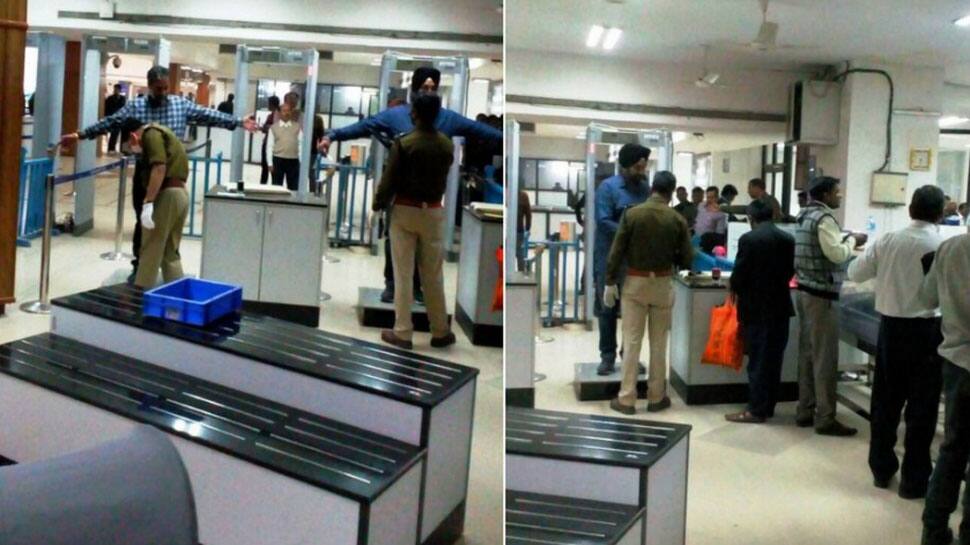
In case you have ever boarded a flight from any of the airports in India, I am sure that you will be familiar with what is termed as the standard security procedure before you actually board the flight.
Here, I am talking specifically about the Delhi's IGI airport.
Every time I am handed out the boarding pass by those smiling customer service attendants at the check-in counters, the next step that follows is this over-enthusiastic screening by this security personnel in uniform where I have to nearly strip naked before I am granted the security clearance to board the flight.
Yes – I am not exaggerating this. They have fully-functional X-Ray machines – and you will have to stand in the queue, wait for your turn, take out all your valuable things (your wallet, mobile, that lovely earphone, your laptop and everything else) on a plastic tray so that they can be screened by the X-Ray machines. They also have those shiny hand-gloves to frisk you from head to toe to ensure that you are not carrying anything that may endanger others.
If you are lucky enough to survive this self-invited embarrassment, you will finally get the boarding pass with the ‘Security Cleared’ stamp by the security personnel. And then, you can enjoy the air-conditioned ambience, buy an overpriced cup of coffee while you wait inside the airport before you grab your seat in the aircraft.
And now, picture this!
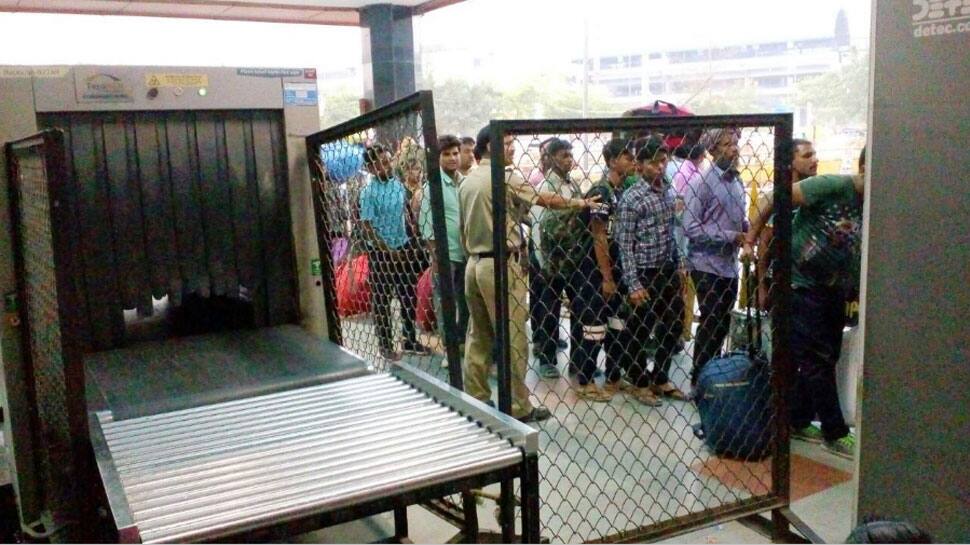
This is a security procedure in process at the Anand Vihar Railway Station, Delhi. If you look carefully, you will realise that the X-Ray machine is out of order and people are happily carrying their travel bags in their hands while entering the station.

Yes, we have a security person standing at the entrance with a hand-held device. However, he was too casual in his duty – and as we can see in this photograph, he even skipped one commuter carrying a red bag.
Put simply, due to the carelessness of this security person on duty at this particular railway station and the other security lapses that exist, there are high possibilities of commuters carrying illegal items (even smuggled ones), besides the ever-present threat of possible terrorist activities.
Look at the baggage trolley carried by a porter, which might have entered the railway station unchecked.
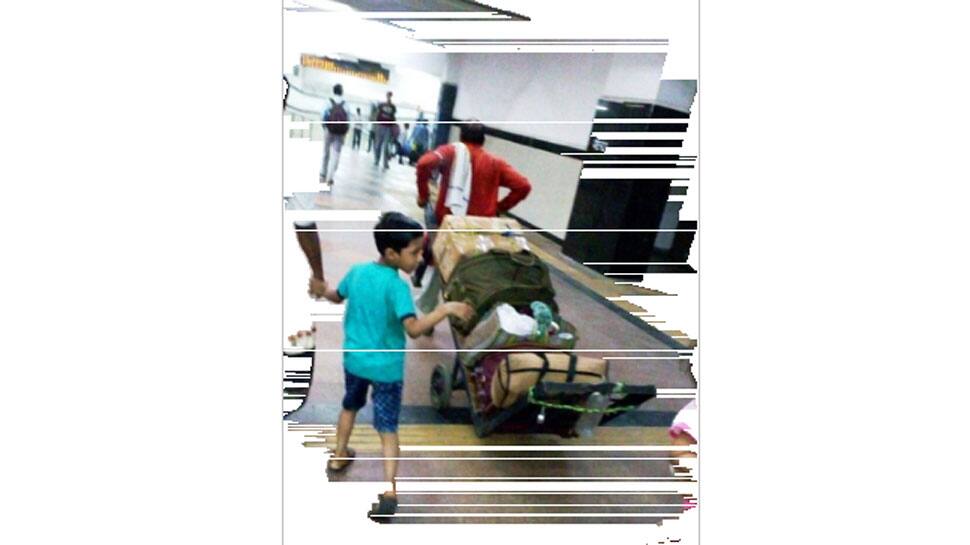
Unlike the airport, where I could spot a CISF personnel guarding every nook and corner of the airport, inside one of the platforms of the Anand Vihar Railway station, I only saw a display board with the Delhi Police Help Line number printed in bold. I could not see a single security person patrolling the platform. This is too much of a responsibility put on a single display board – to ensure safety and security of the passengers in the 12-coaches-long express train.
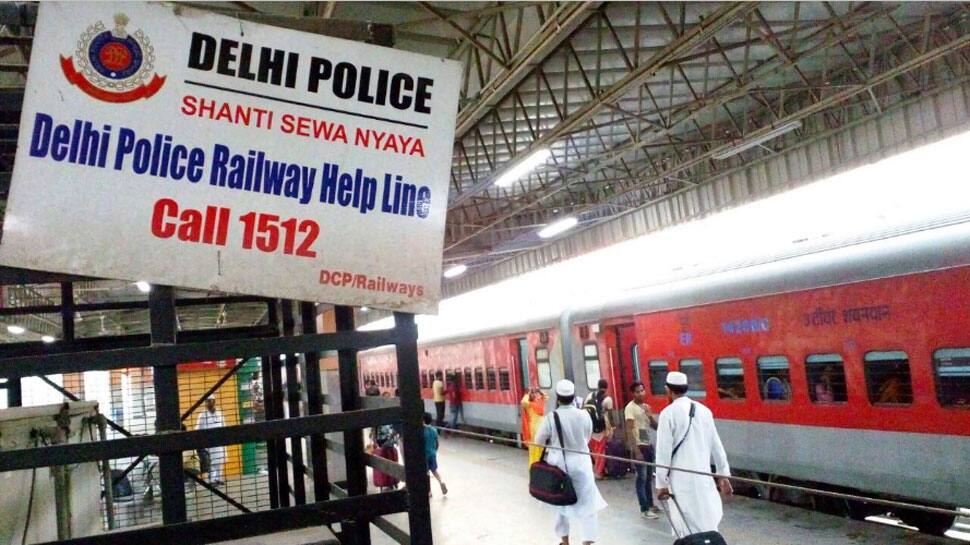
And this is the condition in a railway station located in the national capital region of India. I am just curious to know the plight of railway stations in the other states.
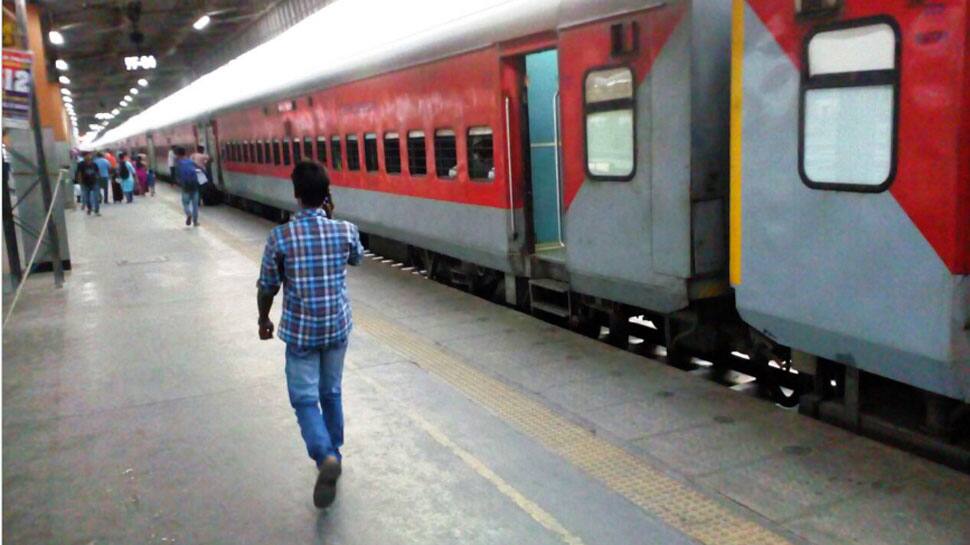
The Bottom Line
Why is this double standard shown in the two different modes of travel that co-exist in India? Am I less safe when I am travelling on a train, which is often considered the lifeline of India and connects more places than the aviation sector does? Is the value of a citizen travelling in a train less than those can afford air travel?
The Constitution of India considers all the citizen of India to be equal, but the sad reality is that some are more than equal.
Rinku Bora works with Centre for Early Childhood Education and Development in Ambedkar University, Delhi






